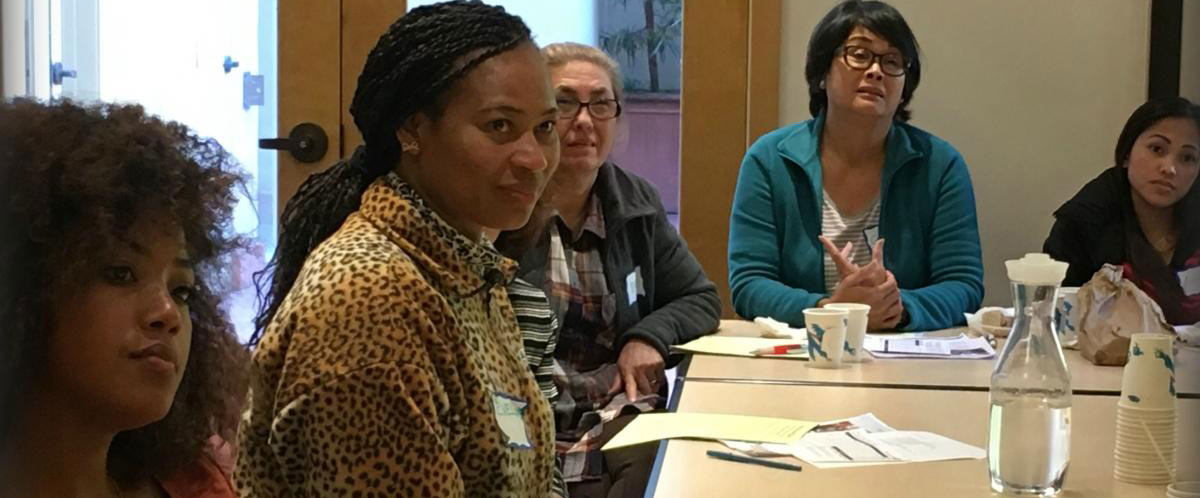At Seniors At Home, we believe that caregivers who feel supported are happier, more confident, and able to provide superior care to the seniors they work with.
One of the many ways in which we support our valued caregivers is through ongoing and specialized training. We offer caregivers training on Alzheimer’s and dementia care, as well as for caring for someone at the end of life. Unique sensitivity trainings give caregivers education about working with Holocaust Survivors as well as with clients of all faiths, backgrounds, gender identities and sexual orientations.

Caring for people at the end of life
Last week, Seniors At Home caregivers gathered with our award-winning Palliative Care Team to explore Palliative and End of Life Care—what it means, how to support clients and their families through illness, what “hospice” means, information about medications used at the end of life, and why talking openly about old age, sickness and dying is so important.
During the class, caregivers are asked about their own belief systems in regard to death and dying, and their own experiences with grief. Education about Jewish cultural norms and traditions is provided by Rabbi Daniel Isaacson, and emphasis is made on maintaining boundaries around personal beliefs and attitudes.
Reflecting on death and dying
Alexis, a caregiver who participated in the training, found the conversation gave her the opportunity to reflect on the important role she plays when a client she cares for is dying.
Alexis said, “We all deal with death differently. When you’ve been working with a client for a long time, it can be very emotional when they die—but personally, I try to focus on the family and be as strong as possible for them because as caregivers, we are a part of their support system.”
Another participant, Eveline, felt that the day’s discussion brought to light the importance of letting go in facing the end of life.
“You have to have acceptance for your own death, and make plans for it,” she says. “If you don’t make plans, you put a lot of pressure on your family members to make decisions for you and that is difficult if they don’t know what you want. It’s nice to at least have an idea that you share with friends and family.”
Alexis and Eveline also both felt that they came away from the training with a better understanding of Palliative Care and of the importance of open dialogue in one’s own life, about fears and feelings about life and death.
Eveline said, “I’m learning that Palliative Care isn’t’ just for the old, or for those who are dying. It cuts across all ages and conditions.”
Alexis agreed and added, “I’m coming away from this training more prepared to simply talk about Palliative Care, and about death and dying with my clients. If we talk about it openly and acknowledge that death is part of life, we will be more prepared and comfortable with it when the time comes – whether that’s for ourselves, a family member or a client.”
To learn more about our outstanding caregivers and how they can help you or a loved one, call us on 415-449-3700.
If you are a professional caregiver and would like to work for Seniors At Home, visit our jobs page.